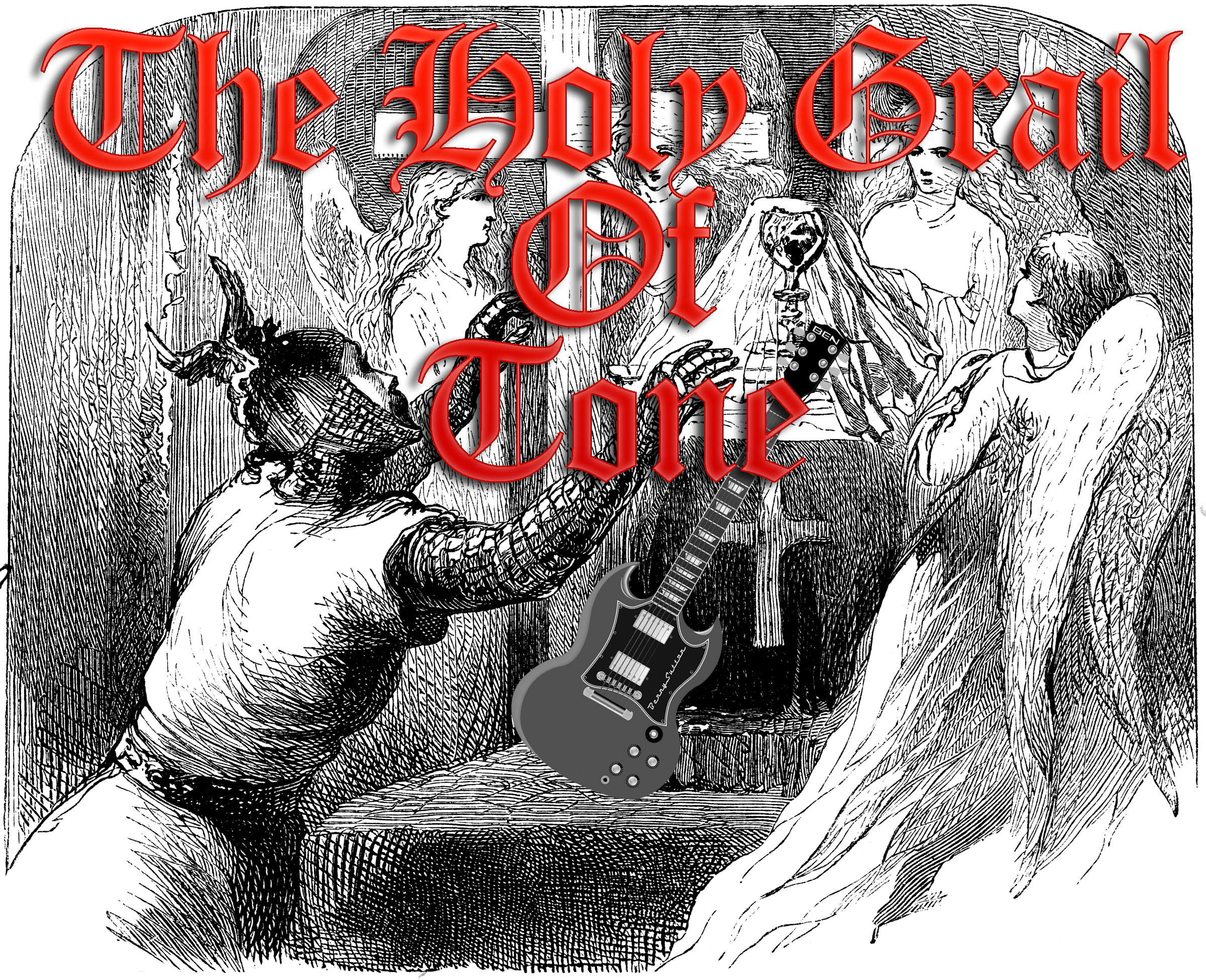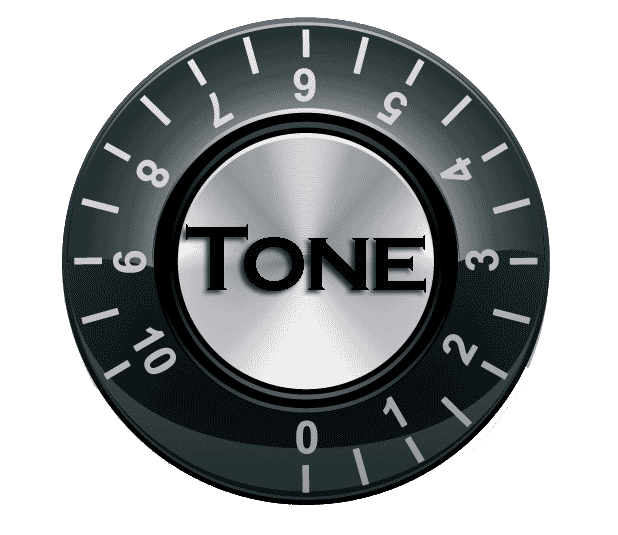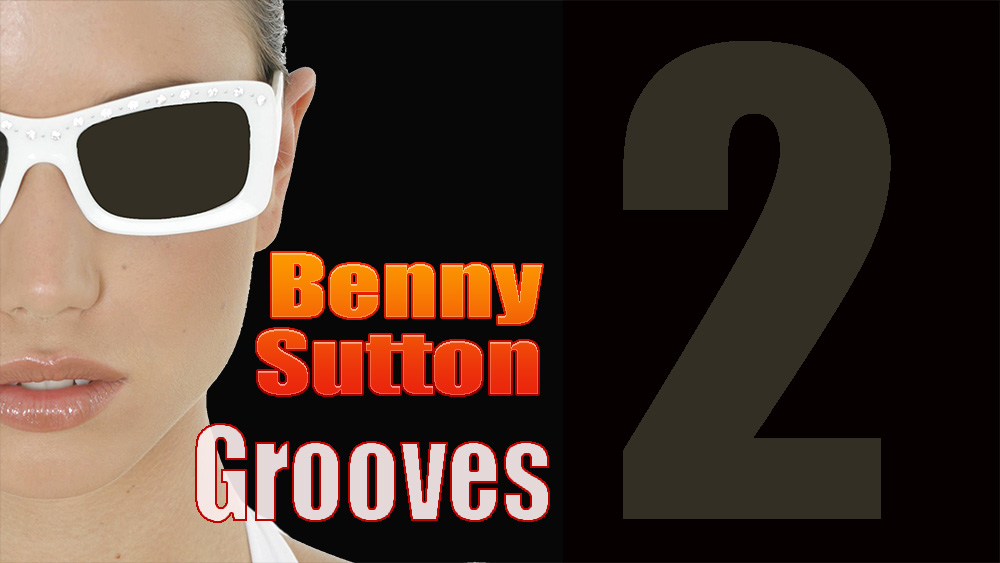The secret sauce to shred like the pro's - discover the Holy Grail of Guitar Tone
.jpg)
Tone is something so personal to a guitarist, it establishes your identity. To master it you must first understand it.
- Learn the Science of Tone (easy)
- Learn how to assess tone
- Define your target tone
- Learn about the three pillars of tone
- Read about all of the above points in more detail here!
If you want to play guitar like Jimi Hendrix you need to emulate his tone first, which is much less demanding than cloning his technique!
The Basics

Have you ever wondered why the same note played on a piano and a guitar sound so entirely different when they have the same pitch?
The answer is tone.
That unique individual tonal quality, or timbre, allows us to distinguish between different instruments. It also allows us to distinguish between different guitarists!
Here I will discuss the quest every guitarist grapples with, the Holy Grail of Tone. It's a tortuous journey so I hope I can lay out some shortcuts that will help you achieve Tone Heaven in the shortest time with the least expense.
It will necessitate a close examination of gear selection but let’s start with a small amount of theory.
The Science of Tone
Without getting overly technical musical sounds consist of a fundamental frequency, harmonics, and overtones. We're talking waves...
- The fundamental frequency is the dominant audible pitch reference of a musical sound. Middle C (C4) for example is 261.63Hz.
- Harmonics are integer multiples above the fundamental frequency.
- Overtones are frequencies of a waveform that are also higher than, but not directly related to, the fundamental frequency.
It is difficult to identify the harmonics and overtones as waves by ear. Most musicians are blissfully unaware of the wave qualities of notes. There is a simple exercise that will demonstrate this and train your ear.
The traditional method of guitar tuning is to compare the same note on different strings. For example, play the 5th fret on your B (2nd) string, which is an E, and compare it to the pitch of your E (1st) string.
Now try this. Detune your E string slightly and play the E on the B string at the same time. Can you hear it? There is a modulation there. It sounds 'out of phase' (which is kinda what a phaser pedal does). There are two waves competing. The more out of tune you are the more obvious they become until, when you are in tune, they synchronize.
The Holy Grail of Tone
It is entirely subjective why one tone is more pleasing to the ear than another, but it is the holy grail of all lead guitarists to achieve the perfect tone.
We do this by manipulating the sum total of tonal characteristics introduced through the signal chain produced by guitar strings, guitar pickups, tone pedals, amplifier, and cabinet. Each stage adds a different weight to the overall tone, with arguably the most dramatic tonal changes added by any tone pedals you use.
Assessing Tone
Don't get confused, especially when assessing tone pedals, between tone and volume (level). Every time you add an effect the sound improves? Not really, it just gets louder - and that fools you that it sounds 'better'
By tone I am not referring to that knob you never use on your guitar (they're always useless). The tone knob does employ the basic principle to focus the sound on a different audio frequency but fails due to the subtractive nature of potentiometers in circuits. Tone controls on amplifiers aren’t much better.
Let’s think about how we hear and identify desirable tones.
Tone Terminology
What characteristics are you listening for...
- Muddy: too much bass
- Bright: loads of treble (high frequencies)
- Thick: a balance of mid-range and bass
- Thin: not enough definition
- Fuzzy: distorted
- Scooped: no mid's
I repeat, great tone is entirely subjective so any of the above can be a good or bad thing, depending on your taste. Like I say, first know your sound.
Learn to dial back your tone to the point it still cuts through, but only just.
Define Your Target Tone

In the quest for the perfect tone, you are seeking… magic. That extra something that, if you could bottle it, would make you a fortune.
Any sufficiently advanced technology is indistinguishable from magic ― Arthur C. Clarke
Musical equipment manufacturers aim to breathe this magic into their products on the promise of delivering you ultimate tone - if only you spend with them. They rarely succeed, though occasionally a name does acheive legendary status; Dumble amplifier or Klon pedals for example.
There is a disclaimer on every Klon pedal from Bill Finnegan, the inventor...
Kindly remember the ridiculous hype that offends so many is not of my making!
The musical instrument industry is a juggernaut with its own cults, showcased annually at the NAMM exhibition. When perception of magic hits a product it guarantees it will be cloned the next year. I'm not judging, that's how commerce works. All I'm saying is that relying on industry-speak may do you a disservice.
Trends come and go but there are timeless values you should allow to guide your choice of rig. The Laws of Physics do not change!
Tone is not fixed
Earlier I introduced the concept that tone is not a fixed point.
One inescapable truism is that you need to cut through in the mix so context is everything. Playing with a largely acoustic group it would be entirely incongruous to use a Death Metal tone!
Context is everything.
Learn to match your tone to the point it still cuts through but doesn’t go over the top. As such, you can think of guitar tone as a range.
It’s easy to conflate tone with sound. You can dial in effects that alter your sound like delays which don’t actually alter your tone.
The Three Pillars of Tone
Let's look at the Three Pillars of Tone
Guitar, Amplifier, and Pedal buying advice
What possible insight can I add to the plethora of advice already out there? Well, I've been playing since age 11 that’s 40+ years. In that time, I've owned a few rigs and played a lot more.
Choosing and buying the right musical instrument can be a mind-bending and costly exercise. There's all that time consuming research trying to avoid potentially expensive mistakes. Well, I've made the mistakes and I'm going to share my hard accumulated wisdom, so you don't have to make the same mistakes too!
I am independent and unsponsored so, if I mention a brand, it is not a paid endorsement.
The first question you should ask yourself is what's my 'sound'
Is it clean? Is it total shred?
Remember...
- You do not get a Rolls Royce for the price of a Honda
- Build quality is everything
- Tone does not equal more Chicks – or does it? 😉
Always keep an open mind. If something works for you that I don't mention, let me know.
Conclusion
Your tone is your musical identity. Tonal range is your narrative.
Let’s look next at equipment choice with Guitars, Pedals, and Amplifiers

